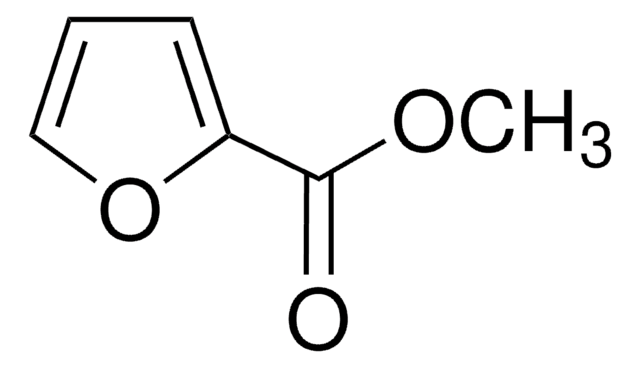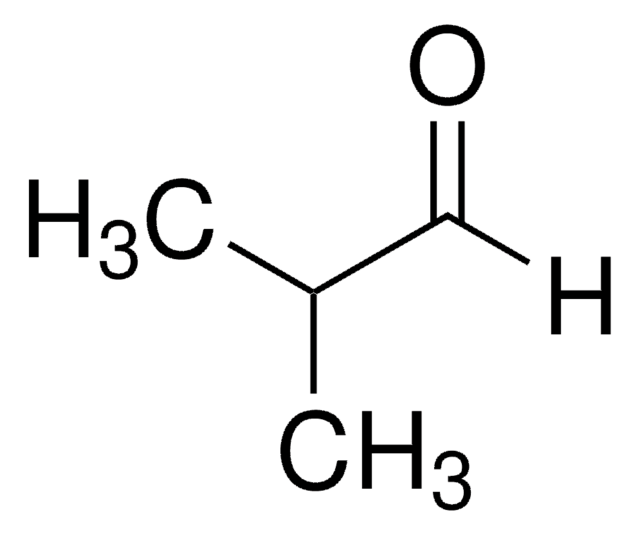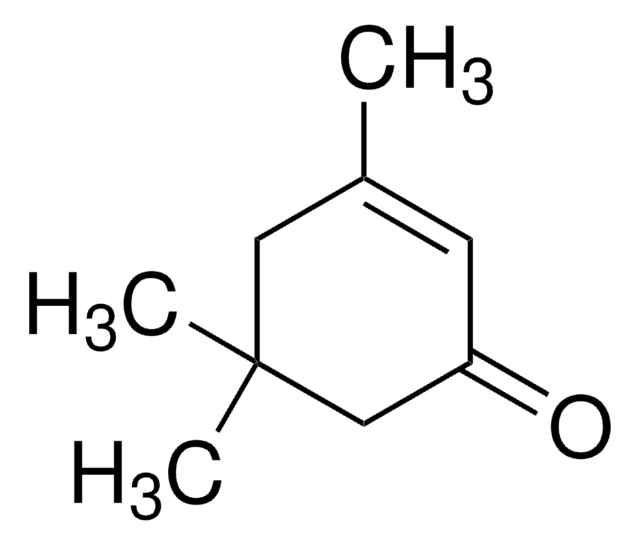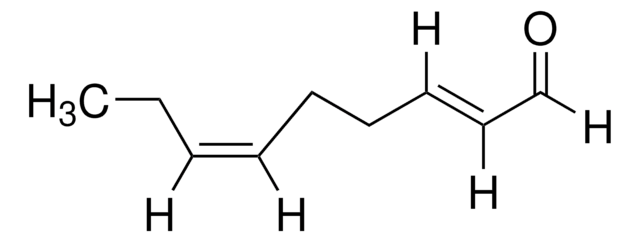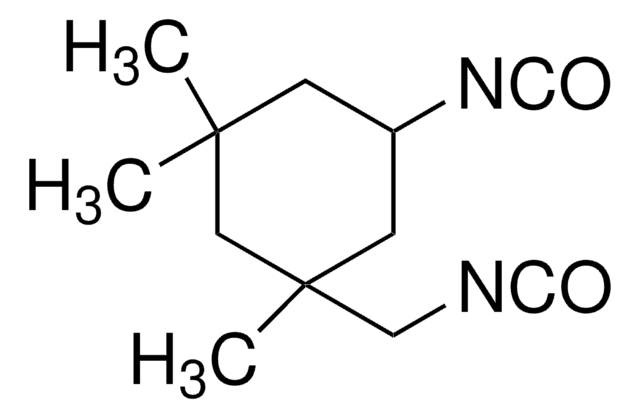W355305
Isophorone
≥97%, FG
Synonym(s):
3,5,5-Trimethyl-2-cyclohexen-1-one
About This Item
Recommended Products
biological source
synthetic
Quality Level
grade
FG
Agency
meets purity specifications of JECFA
reg. compliance
EU Regulation 1334/2008 & 872/2012
vapor density
4.77 (vs air)
vapor pressure
0.2 mmHg ( 20 °C)
Assay
≥97%
autoignition temp.
864 °F
expl. lim.
3.8 %
refractive index
n20/D 1.476 (lit.)
bp
213-214 °C (lit.)
mp
−8 °C (lit.)
density
0.923 g/mL at 25 °C (lit.)
application(s)
flavors and fragrances
Documentation
see Safety & Documentation for available documents
food allergen
no known allergens
Organoleptic
green; musty; cooling; camphoraceous; woody; fruity; sweet
SMILES string
CC1=CC(=O)CC(C)(C)C1
InChI
1S/C9H14O/c1-7-4-8(10)6-9(2,3)5-7/h4H,5-6H2,1-3H3
InChI key
HJOVHMDZYOCNQW-UHFFFAOYSA-N
Looking for similar products? Visit Product Comparison Guide
Biochem/physiol Actions
Other Notes
Signal Word
Warning
Hazard Statements
Precautionary Statements
Hazard Classifications
Acute Tox. 4 Dermal - Acute Tox. 4 Oral - Carc. 2 - Eye Irrit. 2 - STOT SE 3
Target Organs
Respiratory system
Storage Class Code
10 - Combustible liquids
WGK
WGK 1
Flash Point(F)
204.8 °F - closed cup
Flash Point(C)
96.0 °C - closed cup
Personal Protective Equipment
Choose from one of the most recent versions:
Already Own This Product?
Find documentation for the products that you have recently purchased in the Document Library.
Customers Also Viewed
Our team of scientists has experience in all areas of research including Life Science, Material Science, Chemical Synthesis, Chromatography, Analytical and many others.
Contact Technical Service
